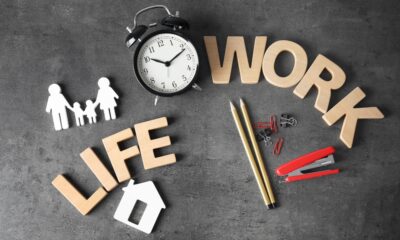Over the past two decades, the labor market has undergone a major transformation – not only driven by technology, but also by the arrival of new generations of employees. It is often said that their values, needs, and ways of working differ from what older colleagues were used to. But are the differences between generations X, Y, and Z really that clear-cut? That’s a question worth asking and discussing.
People often point out that millennials (born 1981–1996) and Gen Z (born after 1997) have different expectations of work, even redefining its very meaning. For many, it’s not just about pay or job titles – it’s about impact, growth, authenticity, and identity.
Work as part of life, not its center
Younger generations emphasize that they don’t want to live to work – they want to work to live, in line with their values and lifestyle. Flexibility is increasingly seen as the norm, not a perk.
🔹 Flexible work models – remote, hybrid, project-based, or non-standard hours – reflect the need for independence and autonomy.
🔹 A culture of trust and responsibility – micromanagement is quickly perceived as lack of trust and discourages engagement.
🔹 Work-life balance – millennials and Gen Z openly talk about burnout, mental health, and the need for rest. Companies that ignore this risk losing not only talent but also reputation.
Work with purpose and room to grow
What many see as a shared trait across younger generations is the search for meaning. Employees don’t just want to “do a job” – they want to understand why and how their work matters.
🔹 Company mission and values – must be authentic, not just slogans. For Gen Z, social issues, diversity, equality, and sustainability play an especially important role.
🔹 Transparency and feedback – open communication and regular feedback foster trust and development.
🔹 Individual career paths – predefined “ladders” are often not enough. Personalization and self-paced growth matter more.
Technology that enables, not controls
Gen Z grew up digital. Apps, automation, asynchronous work, and online collaboration are natural to them. At the same time, technology is expected to support, not monitor.
🔹 A modern work environment – tools for remote work, project management, and communication are no longer optional.
🔹 Automation and UX – clunky, paper-based, or unintuitive processes put companies at a disadvantage in the eyes of candidates.
🔹 Freedom and mobility – working from anywhere and on any device is simply everyday reality.
Managing talent in generations Y and Z
Younger employees aren’t afraid of change. If they can’t find opportunities to grow and express themselves, they will leave – and often see that as a conscious choice, not a failure.
✅ Onboarding as the start of a relationship, not just a checklist.
✅ A culture of dialogue, not one-way communication.
✅ Leaders as mentors, not just supervisors.
✅ Project-based work – with clear goals and tangible outcomes.
Generations that reshape organizations – but how different are they really?
Millennials and Gen Z are often described as more self-aware – they know what they want from work and communicate it openly. Organizations that learn to understand this language tend to attract talent and create more authentic environments.
But are the differences between generations truly as sharp as they’re often presented? That remains open to debate. It’s worth looking at experiences across different companies and discussing what actually sets generations apart – and what is simply the natural evolution of the workplace.












